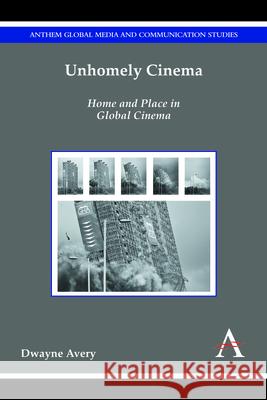Unhomely Cinema: Home and Place in Global Cinema » książka
Unhomely Cinema: Home and Place in Global Cinema
ISBN-13: 9781783083022 / Angielski / Twarda / 2014 / 148 str.
Unhomely Cinema explores how the unhomely nature of contemporary film narrative provides an insight into what it means to dwell in today s global societies. Drawing from Freud s concept of the uncanny that frightful and inexplicable experience of the home as foreign and strange the unhomely speaks to the spatial dislocation, transience, homelessness and disempowerment symptomatic of contemporary global societies. While uncanny homes are traditionally associated with the science fiction and horror genres, Unhomely Cinema shows how an array of film genres from Michel Gondry s comedy Be Kind Rewind to Laurent Cantet s eerie suspense thriller Time Out use the figure of the precarious home to engage with some of the most pertinent social and cultural issues involved in the question of making home. Encounters with the unhomely often result in the painful loss of home, but the unhomely can also offer an ethics of dwelling, whereby the impossibility of narrative closure represents new and more hopeful ways of dwelling in the world."
Representations of troubled and inhospitable domestic places are a common feature of many cinematic narratives. "Unhomely Cinema" explores how the unhomely nature of contemporary film narrative provides an insight into what it means to dwell in todays global societies. Providing analyses of a variety of film genres - from Michel Gondrys comedy "Be Kind Rewind" to Laurent Cantets eerie suspense thriller "Time Out" - "Unhomely Cinema" presents an engaging discussion of some of the most pertinent social and cultural issues involved in the question of "making home" in contemporary societies.











